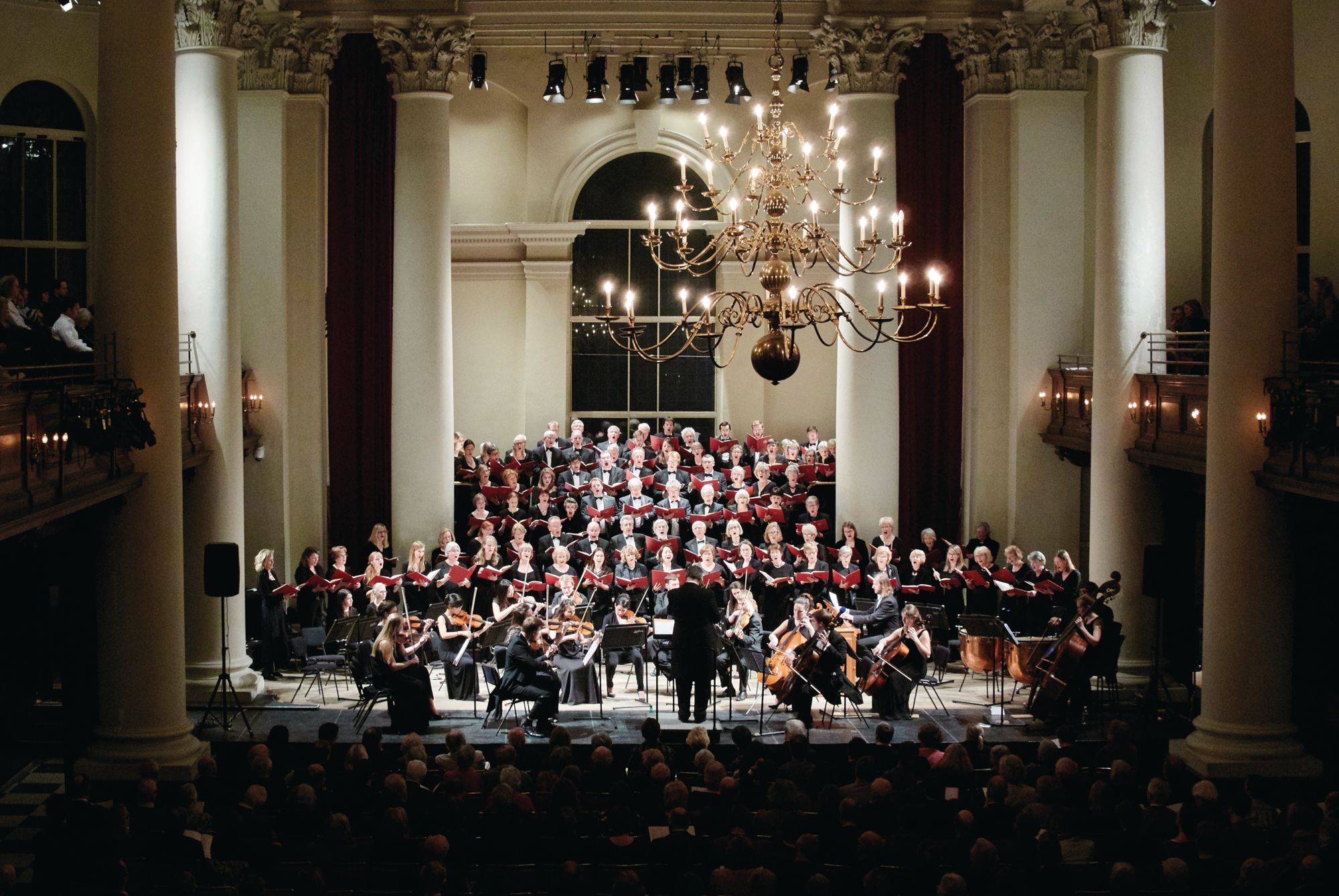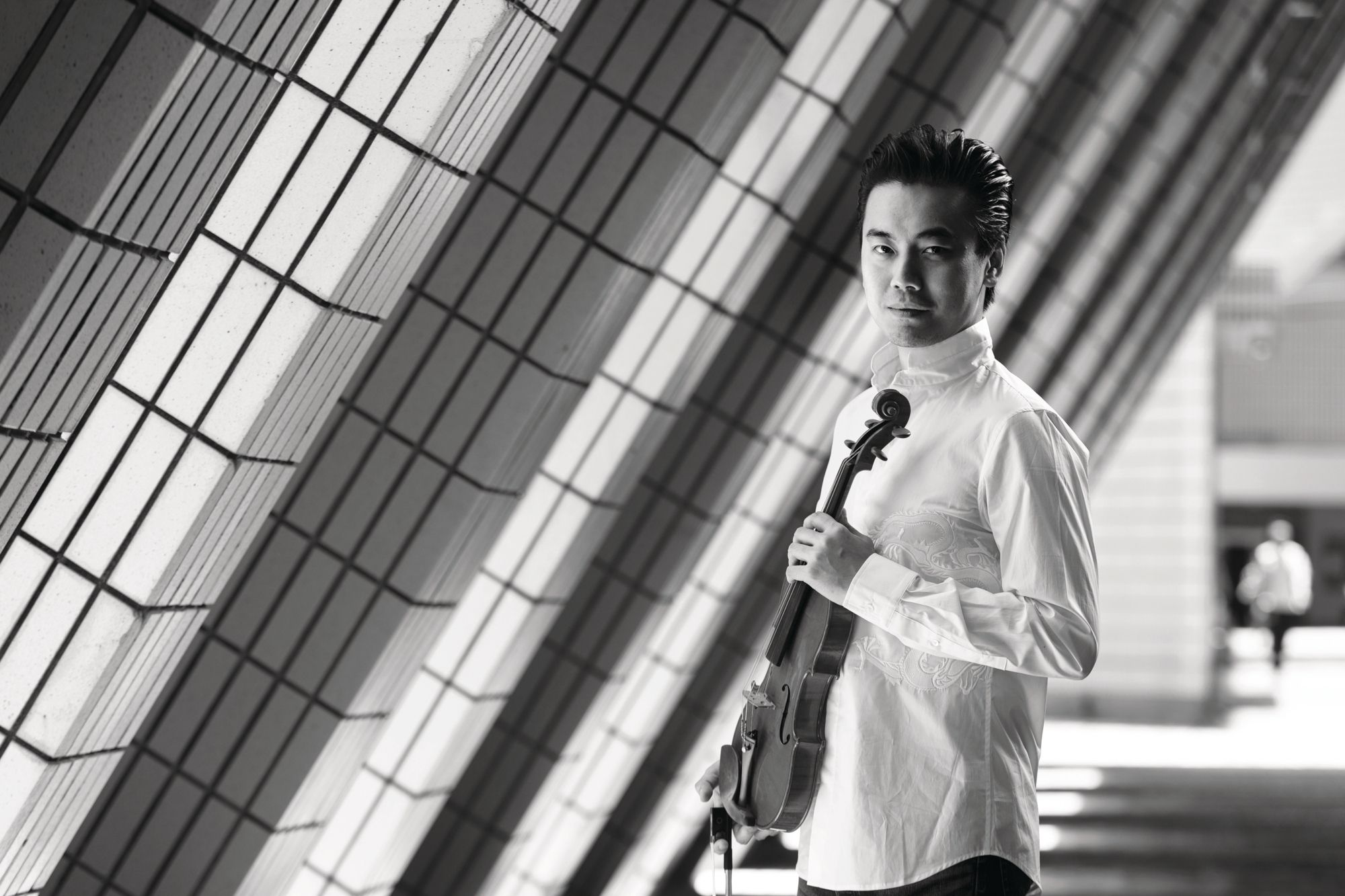Wang is a celebrated violin soloist and has held the title of concertmaster at the Hong Kong Philharmonic Orchestra since 2013
What is the best way to get into classical music?
Start with a platform like YouTube: you can just click and start listening. Classical music isn’t just symphonic works with an orchestra—it can also be a piano solo or a Gregorian chant. The best way to start is to go online, find a platform and a good headset, and start listening.
Do you need to be an intellectual to appreciate classical music?
This idea comes from how pop music has been marketed: pop is easy and accessible and every song is just three to four minutes. With classical works, a symphony can last one or even two hours. That scares people; classical music isn’t necessarily for intellectual people, but it’s scary to go to a concert hall and have to sit there for a whole hour without talking, just listening to one piece.
How can you learn to become comfortable in that setting?
We always like a theme or story to anything we’re watching, listening to or experiencing. If you’re sitting there and don’t have a clue about what you’re listening to, most likely you won’t want to listen to that again. When you’re in front of a piece of music, think about who composed it and why, and what the story is behind it. Most of the time, the story is interesting. Read about the composer’s life and why the piece was composed and you’ll likely relate to it.
What should newcomers not do?
I wouldn’t namedrop someone that I know without really knowing about the style of music they’re playing. Sometimes I go to dinners or parties and someone will ask me: “Do you know Vanessa Mae?” or “Have you played with André Rieu?” Those are the worst questions that make me cringe. Though there’s nothing really wrong with them—Mae and Rieu are both classically trained violinists—but it’s important to understand that real classical music is not amped-up with microphones and played in two minutes.
See also: Here's How You Can Enjoy And Support The Arts During The Pandemic

Who are some classical newcomers to namedrop?
The most hyped composers are the ones winning the Oscars, like Alexandre Desplat and Max Richter. But they are already out there, so I’d say the wonderful Chinese composer Chen Qigang. He was the last student of French composer Olivier Messiaen. He is writing some amazing symphonic work, and violin and piano concerti. Another two are American: Jennifer Higden is doing very well these days in opera; and David Lang, who has been nominated for Academy Awards and Golden Globes, does a lot of film music, and the New York Philharmonic just commissioned an opera by him.
What are the five essential pieces everyone should know?
From the earliest to the latest:
1. Goldberg Variations by Johann Sebastian Bach
Bach is the quintessential baroque composer and this is one of the most mesmerising pieces ever. It’s also Hannibal Lecter’s favourite music.
2. Symphony No. 40 in G minor by Wolfgang Amadeus Mozart
Moving into the classical period, Mozart is great to start on. Start with his Symphony No. 40 in G minor. You turn on the music and you’ll recognise the first movement. His symphonies are like his operas: overly dramatic, but lots of character.
3. Symphony No. 5 in C minor by Ludwig van Beethoven
This year is the 250th anniversary of Beethoven’s birth. He is probably the biggest name in classical. You can’t miss his fifth symphony: it’s probably the most recognised work in history, with an iconic melody and rhythm characterised by him accepting his fate when he was starting to become deaf.
4. Symphony No. 5 in E minor by Pyotr Ilyich Tchaikovsky
Next is the romantic era. I’m not going to say anything more. Just listen and enjoy the ride. It’s one of the most romantic things ever written and has been in lots of movies.
5. Symphony No. 9 by Gustav Mahler
This connects the end of the romantic era to contemporary classical. You can’t complete your journey in classical without listening to Mahler. His symphonic work is like tomahawk steak: the most robust. Listen to No. 9 and read about why he wrote it: it has beautiful moments, but he suddenly goes into atonality, which shows he was suffering from mental health problems.
See also: Tatler's Guide To Being Conversant
Want to see more from Tatler Hong Kong? You can now download and read our full May issue for free. Simply click here to redeem your free issue. Please note, the free download is available from 6 May, 2020 and is valid until 31 May, 2020.
